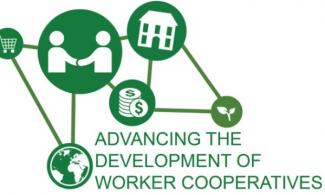The Nation magazine ran a forum on “saving the Democratic Party” in its latest issue. The base article, written anonymously under the pseudonym L. R. Runner, is here and the responses to it are here .
My primary work commitment is to contribute to building alternative political economic institutions. For me this is an approach that is about “changing the game.” Reforming the Democratic Party is about changing the rules of the game. It is very important they not be exclusive. Changing the game is a long-long term approach. Think seven generations. Changing the rules is a short-to-medium term approach. Long-termers like me need to appreciate the importance of addressing immediate mass needs of our current life time, and to support the efforts that can do that as well as possible. Building a solidarity economic movement, for example, can address that for a few in the short-term, but all we can do for the long haul is is to lay a foundation for later generations to build on.
This is a profound problem. Blacks in the world of Jim Crow had to operate with a “double-consciousness” (W E B DuBois). One, in order to survive in their life-time. Two, to have the wisdom to see what they needed to pass on to their children and grandchildren to serve their group’s long haul toward freedom and full inclusion in this society. (The same is true for women.) They had an advantage that we don’t have, at least not to the degree they had it. Their suffering and the direness of the threats they had to cope with were far more intense, and still are for many. They had to be crystal clear to survive, and that kind of clarity is an enormous resource. As one Vietnam veteran described how it was to be in war: “It was the only time in my life when my brain and my ass hole worked together perfectly.” Our moral passion, often quite rageful, rarely attains that degree of sharpness, which is what gave the Civil Rights Movement its cutting edge.
Two things are difficult for activists to work with: 1) long-termers disavowing any value to addressing short and medium term needs, and 2) short-termers pretty much being unaware or overly anxious about factoring in the long and long-long term perspective. The latter failure undermines longer term efforts, and the former fails to connect fully with current reality. We have to keep working with both problems. It comes with the activist territory.
I addressed this in a different way in the Comment I sent to the Nation’s forum. As I wrote it I kept thinking of what John Curl said about the role of government in the interview we did a few weeks ago. Here' what I sent to the Nation:
Yes, Runner is right on one score: the role of government is essential. And now is a moment when it is urgently needed. That means we must reform the political system, yet once again. Ever since the elections of 1896 the progressive mission has been to be the center of coalitions that reform the quasi-democratic American political system that elitist corporate power put in place in that fateful election. (Hat-tip to Larry Goodwyn.) As such it has been and still is the primary countervailing force to that elitist corporate power.
At the same time, that never has been and never will be enough to establish a fundamentally democratic political economics. That is, we must also focus as intently on a long-term strategy of changing the existing game, rather than narrowly focusing on a progressive strategy, which is, in effect, a Sisyphean project. (See Amy Dean’s response.) We did in the 30s. Came back in the 60s to do more. Now have to push the stone up from where it was in the 20s.
Runner’s progressive agenda is basically solid, and some of the additions suggested are good ones. Several of the commentators on her/his article pointed out that it was strategically weak. I agree. The reform approach needs to be thoroughly grounded in grassroots organizing. (See responses by Ellison, Flacks,, Lander, and Harris. Also, Warren’s.)
Voila! A more radical change-the-game strategy for deep, long-term change also must be thoroughly bottom-up and deeply into race/ethnicity, class, and gender. (See Dean’s and Fletcher’s responses.) The grassroots can be the space where progressive grassroots groups can work with change-the-game groups such as the Occupy and alternative economic movements. There is so much common cause between the two different but reinforcing strategies. W.E.B DuBois’ “double consciousness.” (Again, Fletcher’s response.) That is, if both can move beyond the usual territorial rivalries and competition for scarce resources.
Here are eight strategic principles for a change-the-game strategy:
- Change the game, not simply the rules of the game.
- Re-connect economics and politics all the up and all the way down.
- Think “movement” all the time.
- Build regional webs of alternative economic enterprises into reciprocal chains of production-and-consumption that connect producers to retailers to consumers in ongoing communication.
- Ground this alternative economy in people’s lives through base-community building and local mediating institutions.
- Link base-communities, their mediating institutions, and second-tier institutions throughout the region to each other.
- Think in terms of generations, not years, not even decades.
- Develop grassroots transformative processes that enable people to learn how to empower themselves personally and collectively.




Add new comment